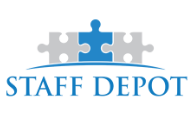Balancing Act: Ethical Interviewing That Works

Alright, folks, it’s time to get honest. In today’s age of social media that shares every meal, vacation and purchase, combined with tabloid news that “spills the beans” on the intimate details of every quasi-celebrity or public figure, it’s pretty easy to think that nothing is off limits when it comes to the personal lives of those we interact with.
From oversharing ourselves to prying into the lives of our co-workers through nosey, probing questions, we’ve become gluttons for information, and for filing that info away for future use. In the real world, this merely makes you that crappy friend that nobody wants to share with. In the realm of hiring, however, this can create serious ethical dilemmas that may get you into hot water legally and could have a negative impact on your company’s reputation.
In order to help avoid the pitfalls that may be caused by these types of practices, it’s important for employers to promote and ethical culture in their interview process. Well, you’re probably thinking, that sounds all well and good, but how exactly do I go about implementing such a change? Glad you asked! Keep reading as we delve into suggestions for establishing an ethical interviewing system that works.
Begin At The Beginning
As with any new or revised system, ensuring an ethical interview process starts at the beginning. Effective and ethical hiring techniques not only keep your company out of the legal hot water, but they also contribute to your company culture and reputation both with clients and when it comes to making your next hires. This often begins with a transparent interview process that is clearly communicated to potential recruits.
Consider listing the application and interview process in your job posting or on the career page of your corporate website. Not only will this clue candidates in on the potential process they’ll be facing, but it also will set the right tone for anyone looking to gain insight into your brand and corporate culture. Be sure to include an abbreviated version of your statement, along with your commitment to ethical, fair and diverse hiring practices in all of your job listings to add confidence to those looking to apply with your company.
Using a non-discrimination statement on job descriptions not only signals that you’re compliant with local laws, but it also serves as an extra layer of comfort to any minority or protected classes that may not have prior experience with your company. A standard statement looks something like:
Our company is an Equal Opportunity Employer. Our employment decisions are made without regard to race, color, religion, sex, marital status, pregnancy, national origin, citizenship, age, physical or mental disability, genetic information, sexual orientation, veteran status, military status, or any other characteristic or status protected by federal, state or local law.
Be sure that your managers, hiring managers, HR coordinators, and others meeting with interviewees are well versed in both your company and legal standards for ethical interviewing. Once you’ve added a candidate to your roster, consider taking a survey of the hiring process that includes their views on whether you measured up to your claims. Not only will it set the right tone with new hires, but it will also serve as a valuable way to keep your managers accountable during the hiring process.
Create A Culture Of Knowledge
On the topic of ongoing training, it’s important that you not wait until a position is in need of filling before giving feedback and guidance on ethical interviewing. Incorporate this type of training into annual compliance or feedback programs. Different options for education may include:
- A quick-tips guide regarding illegal questions, potentially offensive questions, and effective interviewing techniques always available on your company intranet
- A yearly newsletter on interviewing do’s and don’ts
- If you have an internal employee referral program, the document communicating the terms is a great place to stress what should and should not be said to potential recruits
- As part of manager promotion training, add in an interview segment in their initial packet or transition program
- If you have a mentorship or career development program, interviewing should be added as a vital element for career growth skills
Deliver Training
We’ve mentioned training several times as a key method for establishing an ethical interviewing environment. Not all training is created equal, however, and it’s critical that your communication to those involved in the hiring process meet your individual program needs.
Consider staging mock interviews with or without scripts. Live and interactive Q & A’s are often great ways to kick off discussions on best practices and to help participants identify what could have been done better. Video presentations are also excellent and employers should strive to use company participants to help make the scenarios as real world as possible. Be sure to address some tough but common areas that come up in interviews and supply plenty of guidance on how to keep things on the up and up when they arise.
Review What Works
Last but not least, every employer should be sure to tailor its ethical hiring process to what fits the needs of the individual industry, company, and position. There are, however, some universal principles that can be applied across most hiring programs:
- Be timely and organized when setting an interview schedule with a candidate
- Ensure that interviewers are prepped for effective and ethical interviewing behavior and questions
- Proactively provide timelines & next steps to candidates regarding the interview process
Follow the above basic approaches to ensure that your company develops a strong foundation as a great employer and a great place to interview.
Recruiters and hiring managers can also set their interviewers up for success by providing guidance in the way of common or suggested questions or topics. Often when an unethical question is raised it’s inadvertent and due to a lack of preparation or knowledge rather than the desire to delve into an illegal subject. If you have a behavior question approach to interviewing, be sure to have the interviewer prep and preview these with HR, recruiting or senior management in advance. Work with interviewers to encourage them to have a list of questions to ask potential candidates. This step will be especially important for those on your team that have little to no prior recruiting experience.
Caution interviewers about casual conversations. Icebreaker type of small talk is one of the most common areas where an interview can go out of bounds. Need a bit of guidance on topics to avoid? As a refresher, see the following areas that cover protected categories for any candidate and should never be included in an interview: age, gender, sexual orientation, race, ethnicity, marital status, family status, religion, disability.
The Bottom Line
Remember that the interview process has a direct impact on your recruiting brand and, therefore, your ability to generate a positive impression in attracting top talent in the future. Advertising that you’re an ethical employer is one thing, but word of mouth is often more powerful as a direct insight into whether your company’s words are put into action. Dedicate time to training for the interview process and reap the rewards of knowing that your ethical message will be firmly communicated across all levels and company interactions.



